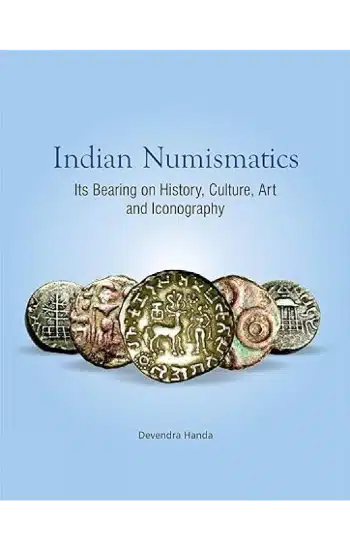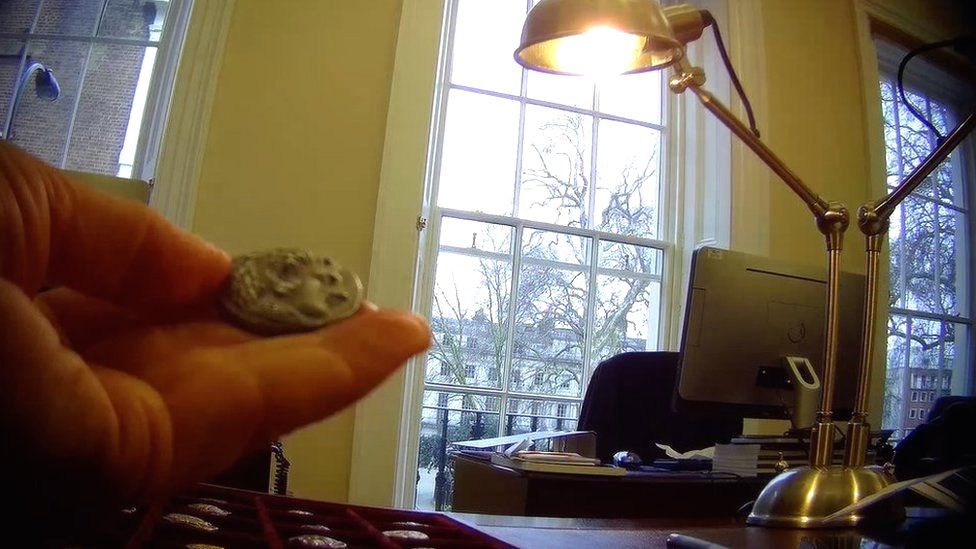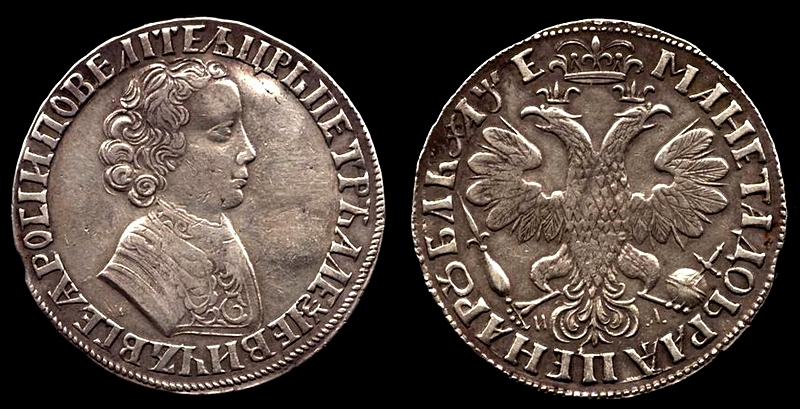Best Facts To Selecting Yen And Coin Album
Wiki Article
How Can I Research Numismatics In Relation To Museums By Using An Online Database?
Utilizing a database to conduct numismatic research with respect to museums needs specific steps to gain access to information about collections of coins exhibitions, research in scholarly journals and more. The following is a step-by-step guide: Database selection: Select the cataloging database that is appropriate for museum collections as well as numismatic artifacts. Databases for museums such as those of the British Museum, Smithsonian Institutions or online platforms that focus on numismatic and museum collections objects are all possible options.
Define Research Focus: Specify your research objectives. Are you seeking the numismatics collections of the museum you are visiting, or collections of coins, educational publications on numismatics, the historical and cultural contexts associated with numismatic exhibits, or scholarly books on the subject. Make sure you know what you are looking for in order to direct your research.
Search Strategy: Make use of keywords that relate to numismatics museums, and coin exhibitions. If possible you could also add the name of specific museums or geographical locations. It is possible to use advanced search options to filter the results by date or the kind of collection.
Data Collection: Access detailed information on the numismatic objects in museums. This includes images, provenance, historical significance, and detailed descriptions. Explore digital catalogs of coins organized according to time period, civilization or thematic.
Analysis: Analyze the information to determine the significance of numismatic collections within museums. Analyze the ways museums interpret and curate coins within larger historical and cultural narratives. Examine the different ways museums exhibit items numismatic. Focus on educational strategies as well as interpretive frameworks, among other aspects.
Cross-References: Confirm the accuracy of your data by comparing it with other museum databases or academic sources. This ensures completeness and accuracy when conducting your research, and provides the most complete view of the numismatics of museums.
Documentation. Record your research findings by citing sources, and noting methods. Take note of the information in the databases you visited and the search terms you used, and how each one of them relates to your research question.
Keep yourself updated: Numismatic collections and museum exhibits are subject to change as time passes. Check databases regularly for information on the latest acquisitions, temporary exhibits or publications from scholarly journals that could enrich your research.
Follow these guidelines to efficiently utilize databases for examining the field of numismatics and its relationship with museums. This will allow you to investigate thoroughly the display of coins and their interpretation in museums, and further explore them in scholarly. Check out the best rand hints for more examples including coin pressing, coin appraisal, denomination, yen, currency exchange, rupee, coin certification, banknote club, coin minting, german coins and more.

What Can I Do With An Online Database To Look Up Numismatics With Regards To Refineries?
This type of research requires databases that offer information about refineries and numismatics. These databases include ones that provide information on refining of precious metals, the minting process and also historical and technical aspects. Here's a step-by-step approach to conduct this research: Database selection: Select databases that are focused on refinement of precious metals, minting processes, and numismatics. A few examples are databases from major refineries like Johnson Matthey and Heraeus or mints run by government agencies such as the United States Mint and Royal Canadian Mint.
Define Research Focus: Specify your research objectives. You may be interested in understanding the past of refineries and their operation, technological advancements producing coins, gold bullion as well as the high-quality standards and certifications of refineries for precious metals. Know what you're seeking to know in order to guide your research.
Search Strategy: Use keywords like "precious metals refineries," "minting processes," "bullion production," and include specific refinery names, geographical regions or periods of time if relevant. Filter results using advanced search features. This includes filtering results by date, document types (such a technical report or production statistics) and refinement methods.
Data Collection: Access to information about refineries such as their dates of establishment, the types of precious metals processed (such gold, silver, and platinum) and the refining method used (such chemical refining or electrolytic), any notable advancements or developments in the past, or any innovations that have been made in refining.
Analyze: Analyze to understand the role of refineries in numismatics. Analyze how refineries provide precious metals that are used to make bullion and coins, as well as control quality during the process of minting, and contribute towards standardizing the use of coinage metals. Review the techniques and methods used by different refineries.
Cross-Referencing: Verify your findings by cross-referencing information across various databases and sources. This method ensures that your research is reliable and complete, giving you a full picture of the refineries' contributions in numismatics.
Documentation - Document your research findings by citing sources and identifying the methods employed. Keep track of information like the databases you have accessed, your search terms, and their relevance to the research questions.
Stay current: Refining technologies and standards evolve over time. Information from publications in the industry like refinery reports and mint publications will keep you up to date on the latest developments of refining technology and its impact on numismatics.
You can use databases to research refineries and numismatics using these steps. This permits a thorough analysis of the technological advancements, quality control, and historical contribution of refineries in the production of bullion and coin across the globe. Take a look at the top coin certification for more info including banknote forum, peso, authenticity, coin dealer, banknote society, banknote auction, nickel, currency, czech coins, denomination and more.

What Can I Do With A Numismatics Database To Do Research On Authentication Services For Numismatics?
If you are researching numismatics to find authentication, make use of databases that are specialized in coin authentication, certification agencies, copyright detection and historical methods of authentication. A systematic approach is offered to aid you in your research. Sites for certification agencies (like PCGS and NGC), research platforms for numismatics, and publications by numismatic society are examples.
Define Research Focus: Specify your research objectives. Are you interested in gaining knowledge of the authentication procedures employed by certification agencies as well as the technologies used to detect counterfeits, methods used in the past for authentication of coins, or the effect of authentication on coin value? Find your area of interest to help you in your study.
Search Strategy: Use words like "coin authentication," "certification agencies,"" "copyright detection" and also include the specific organizations or authentication techniques (such as spectroscopy, micro-imaging) if applicable. Utilize advanced search to filter results based on date, authentication methods and cases.
Data Collection: Find details on authentication methods employed by certification organizations. Information on authentication techniques, including technologies like coin imaging, cases studies, XRF as well as historical perspective are available.
Review your data in order to comprehend the reliability and effectiveness of authentication services. Evaluate how certification agencies authenticate and detect copyright currency and maintain quality and consistency in authenticating and grading processes. Compare authentication practices across different agencies or technological advancements over time.
Cross-Referencing. Verify that your research is accurate by cross-referencing the information in various databases. This includes websites of certification organizations, numismatic journals historic archives, as well as publications. This will allow you to do a thorough and precise investigation. Also, you'll get a full picture of the authentication practices employed in numismatics.
Documentation: Document all your research findings, including the sources you used and mentioning the methods you used. Take note of the information in the databases you visited and the search terms you used as well as the importance each source offers to the question you're researching.
Stay up-to-date: As technology improves and the threat of counterfeiting increases, so do authentication standards and techniques. Stay up-to-date by keeping up-to-date with information from certification organizations or numismatic magazines. industry reports on authentication methods and developments.
Following these steps will allow you to gain a thorough understanding of authenticating and numismatic services. This technique allows for a thorough investigation of the methods, technologies and practices used to authenticate the authenticity of coins, allowing you to gain knowledge about the reliability and the impact of numismatic authentication in trade and in collecting. Take a look at the top banknote storage blog for more recommendations including banknote show, penny, austrian coins, banknote show, legal tender, currency authentication, banknote book, dime, currency exhibition, coin certification and more.

How Can I Find Out More Information About Numismatics By Using Online Forums And Communities Using A Numismatics Database?
Here's how to conduct such a research: This is a systematic method to do such research. Examples include forums like CoinTalk, Reddit's r/Coins, and specialized numismatic communities on social media platforms such as Facebook groups and LinkedIn.
Define Research Focus: Specify your research objectives. Are you seeking to gain an understanding of the current trends in collecting or to discuss certain coin types and historical periods, or solicit advice regarding authentication and grade. Find out the purpose of your research.
Search Strategy: Use keywords relevant to your interest, such as "numismatic forums," "coin collecting communities," "online numismatic discussions," and include specific subjects (ancient coins, modern coins and paper money) or terms that relate to the topic you are researching. Utilize the search functions on these platforms to find relevant discussion threads.
Data Collection: Access the data contained in threads, discussions, or threads on forums online. Find out information about collecting strategies and coin identification techniques and market trends, as well as personal experiences of numismatic discoveries and discussions about historical or cultural aspects of coinage.
Analyze the data to gain a better comprehension of the views of experiences, knowledge, and experience from the members of online numismatic clubs. Examine the degree of expertise, consensus, and depth of discussion among the members of the community to assess the data.
Cross-Referencing: Verify the truthfulness of your findings by comparing data from different forums and communities. Review the information across various platforms to get a better understanding of trends that are collected, market sentiments and experts in the world of numismatics.
Documentation - Write down your observations in a systematic fashion by citing threads, contributors and discussions as needed. Note key trends, insights and the opinions of others that are posted on forums online.
Keep Engaged - Take part in discussions with enthusiasm and ask questions, then contribute to the discussion to gain insights and establish connections between the Numismatics. Keep updated by following new threads, commenting on them, and releasing announcements.
The following steps can help you effectively conduct research in numismatics using online forums and communities. This gives you access to the expertise and expertise of a broad array of experts and collectors. You will gain valuable insights on the various aspects of the collecting of coins, identification and appreciation. See the most popular coin blank for more recommendations including currency forum, rupee, pound, banknote club, coin collecting, proof coins, banknote artist, coin value, silver coins, coin certification and more.
How Can I Look Up A Database On Numismatics To Locate Networking Opportunities?
When conducting research in numismatics that is focused on networking, it's essential to utilize databases as well as other platforms. These platforms will enable you to connect with collectors, dealers scholars and enthusiasts. Here is a methodological approach to conducting such research:Database selection: Choose platforms or databases that are specialized in networking opportunities in the numismatic field. Examples of these include numismatic sites or online discussion forums (such CoinTalk, Reddit’s Coins), social media (such Facebook and LinkedIn) groups, and professional social networking platforms.
Set the Research Focus. Specify Your goals for networking. Are you looking to network with collectors, exchange knowledge and knowledge, collaborate with dealers on acquisitions, sales, or work with scholars on research projects? Clarify your goals to help you narrow your search.
Search Strategy: Use keywords like "numismatic networking,"" "coin collectors forums," "numismatic social media networks" and also include your specific interests or geographic regions if appropriate. Use search functionality within platforms to find relevant forums, groups, and other events.
Data Collection: Obtain details about the opportunities for networking within the community of numismatics. Find out information about group descriptions, membership benefits (such as access to events, discussions, and resources), future events (like auctions and conventions, as well as exhibitions) and profiles of key influencers or organizers.
Analyze your data to identify the appropriate channels and opportunities for networking. Examine the level of engagement in forums as well as group, the diversity (collectors/dealers/scholars) and quantity and quality of discussions as well as the potential for collaborations.
Cross-Referencing: Verify your conclusions by comparing information across multiple databases, numismatic society websites, social media groups, and professional networking platforms. This helps you discover extensive networking opportunities across various areas and platforms.
Engagement: Engage with your preferred networks Contributing to discussions, providing insights, answering questions, and sharing expertise. Connect with other collectors to create your network. Exchange valuable numismatic data.
Documentation: Record your network activities in detail by noting the various platforms you use and the groups you join, the meetings attended, as well as contacts made. Note down the opportunities you explored and the results you achieved by networking.
Use these guidelines to utilize databases efficiently to research numismatics with regard to networking opportunities. This method lets you extend your professional or personal network within the numismatic community by helping to facilitate collaborations, exchange of knowledge, and participation in numismatic events which enhance your knowledge and involvement within the field. Follow the best banknote display for site examples including penny, ringgit, rupee, shekel, coin production, coin series, coin club, antique coins, bullion coins, uncirculated coins and more.
